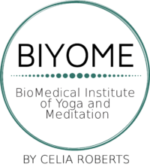Anam Cara Centre for Psychedelics and Contemplative Therapies
Dr. Lani Roy and Melissa Warner
Certificate in Psychedelic and Contemplative Therapies (CPACT)
Download information about CPACT now and email drlaniroyanamcara@gmail.com for a syllabus and application form.
Welcome to the EMPATHS Certificate of Psychedelic and Contemplative Therapies Course by Dr Lani Roy and Melissa Warner. The EMPATHS approach, designed as part of CPACT (Certificate of Psychedelic and Contemplative Therapies), represents values that synergies the ancient wisdom of contemplative practices with the modern, evidence-based realm of clinical psychedelic therapy.
The EMPATHS values, with its components – Embodied Ethics, Metacognition and Multiplicity, Potentiality, Agency, Transpersonal, Holistic, Science and Somatics
EMPATHS is a trans-diagnostic and multi-medicine model that embodies a unique approach deeply rooted in existential, contemplative, cognitive and somatic practices. EMPATHS invites both therapists and clients to embark on a profound exploration of their psyche, body and personal trajectories. By intertwining contemplative discernment and embodied awareness, this framework offers a rich tapestry for therapeutic engagement, facilitating a deeper understanding of one’s inner landscape and facilitating meaningful growth. This integrated approach empowers therapists and clients alike to navigate the complexities of the human experience with greater knowledge, compassion, and psychological skills, fostering a therapeutic educational and clinical environment conducive to personal and community healing.
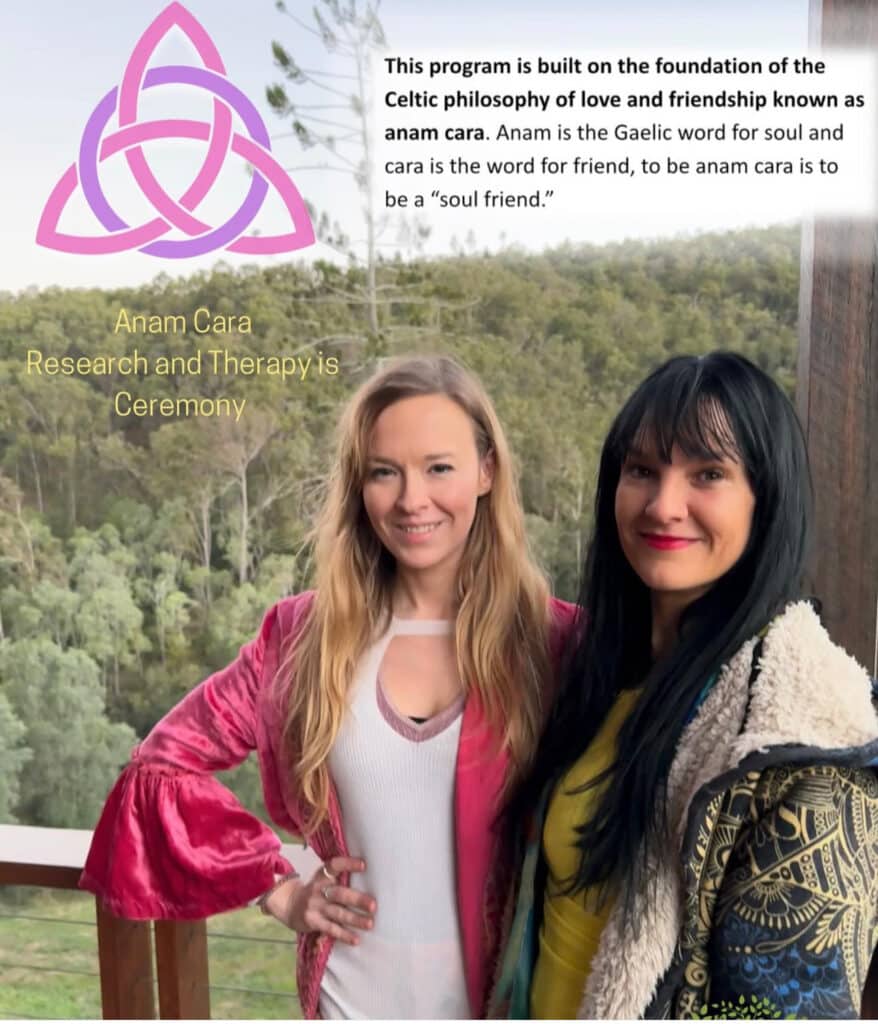
CPACT is guided by the therapeutic frames of SWIM—Somatic, Wisdom, Interconnectedness, and Metacognition —the EMPATHS approach supports therapists and clients to navigate the tides and currents of psychedelic ‘oceanic boundlessness’, as the state has come to be known through the scientific literature (Carhart-Harris & Nutt, 2017). By learning to “SWIM” in these psychedelic oceans, therapists and clients will be better equipped to dive deep into the psyche’s depths, to anchor in the knowledge, tools, skills and resources that may navigate the dance of the tides. Each frame in the SWIM model offers a unique lens for examining and enhancing personal and collective well-being. The model guides individuals through stages of view, practice, application/conduct, and fruition. This structure helps clients understand theoretical concepts and apply them practically in their lives, leading to meaningful and sustainable change.
The SWIM model’s holistic approach is particularly suited for those engaged in psychedelic-assisted therapies, supporting deep, multifaceted exploration and integration of psychedelic experiences. The program is not only a scientific and theoretical method, it invites a poet’s perspective, a harmonisation of heartmind; cultivating the capacity for loving awareness with every cell of our being. Heartmind allows us to explore our inner worlds and the mystery in which we are all co-creating with courage, discernment and grace.

Anam Cara & CPACT Instagram LaunchThe Signs of Life Psychology is currently running the Psychedelic-Assisted Therapy (PAT) training course that is crafted in alignment with emerging Australian standards. This program provides PAT professionals with a road map to navigate psychedelic landscapes- shifting altered states, into altered traits and embodied wisdom.
Upon successfully completing this course and meeting the necessary skill prerequisites, you will acquire the proficiency to provide Psychedelic Assisted Therapy within the parameters of current regulatory government guidelines, fulfilling the roles of a Psychedelic Prescriber (PP), Psychedelic-Assisted Therapist (PAT), or Psychedelic Facilitator (PF). It’s important to note that for full accreditation as a Psychedelic Therapist, you must have eligibility for registration with a governing body such as:
- Australian Health Practitioner Regulation Authority (AHPRA)
- Australian Association of Social Workers (AASW)
- Psychotherapy and Counselling Federation of Australia (PACFA)
- Australian Counselling Association (ACA)
- Indigenous Allied Health Australia (IAHA).
The next course in 2025 will be launched under Anam Cara For more information email alana@thesignsoflife.com.au
This program is built on the foundation of the Celtic philosophy of love and friendship known as anam cara. Anam is the Gaelic word for soul and cara is the word for friend, to be anam cara is to be a “soul friend.”
Dr. Lani Roy and Melissa Warner, both with Celtic roots, have journeyed together through numerous academic, psychedelic ventures and profound dark nights of the soul. EMPATHS, SWIM, and CPACT would not exist without the foundation of anam cara—and the friendship that underpins their work. These initiatives are a testament to the unique synergy of Lani and Melissa’s partnership.
Similarly, to anam cara, psychedelic assisted psychotherapy offers the opportunity to hold up the mirror to self and the aspirations of consciousness which can transcend conditioning, disconnection, mental illness and existential despair; opening the door to creativity, connection, and potentiality.However, for these elements to unfold, we invite you to simultaneously and paradoxically dream widely with us as we collaborate in the psychedelic ecosystem whilst grounding firmly with discernment and wisdom. As we dream, vision and co-create we must instill strong pillars to hold the foundations of this work. We need strong foundations that can hold both the science and the sacred, so that psychedelic therapy is embedded safely within the interconnected web of our social, cultural, political, spiritual and health care systems.
If interested please read the following Launch Kit and email drlaniroyanamcara@gmail.com for a syllabus and application form.
What You Will Learn
The course is structured to cover key areas relevant to Psychedelic-Assisted Therapy & Complementary Therapies.
You will receive a Certificate of Psychedelic and Contemplative Therapies (CPACT).
Introduction to Psychedelic-Assisted Therapy:
- Overview of PAT principles and historical context.
- Exploration of TGA regulations and recent decisions impacting PAT in Australia.
- Trauma-Informed Approach to psychedelic therapy.
History and Foundations:
- Dive into the medicinal history of psychedelics.
- Explore the role of plant medicine in Indigenous traditions.
- Understanding cultural significance.
Consciousness, Buddhist and Yogic Connection:
- Uncover the nexus of psychedelics, consciousness, and ego death.
- Explore intersections with yoga and meditation
- Delve into the science of consciousness and the use of psychedelics in research.
Psychoactive Substances:
- In-depth knowledge of commonly used psychedelic substances.
- Understanding dosage, effects, and contraindications.
- Exploration of Psilocybin, MDMA, DMT, Ketamine, and Cannabis with a focus on evidence-based research.
Client Assessment and Suitability:
- Techniques for pre-screening and assessing client suitability for PAT.
- Identifying potential risks and contraindications.
Clinical Skills Training for Psychedelic-Assisted Therapy:
- Practical training in administering PAT sessions.
- Techniques for ensuring a safe and supportive therapeutic and trauma-informed environment.
- Effective preparation, adaptive facilitation, and post-session guidance.
Complementary Therapeutic Modalities:
- Somatically focused therapies such as Trauma-Informed Yoga, Compassion-Focused Yoga Therapy, and Meditation.
- Trauma-Informed Meditation and Mindfulness-based approaches.
- Trauma-informed therapies that recognise the multiplicity of the psyche such as EMDR, Internal Family Systems, Structural Dissociation, Ego Gestalt Therapy, Jungian Depth Psychology, Psychodynamic Psychotherapy.
Ethics and Legal Framework:
- Detailed exploration of ethical considerations in PAT.
- Review of legal frameworks and recent decisions impacting the practice.
Professional Development and Integration:
- Strategies for ongoing professional growth in the field.
- Best practices for integrating PAT into existing therapeutic modalities, including somatic therapies such as trauma-informed yoga, somatic experiencing, compassion-focused therapy, lifestyle medicine, creative arts, embodiment practices, trauma-informed meditation, and mindfulness.
- Nature-based therapy and indigenous philosophies and indigenous competency for psychedelic-assisted therapy.
- Explore current issues in the psychedelic space that impact accessibility and cultural safety of psychedelic-assisted therapy for Aboriginal and Torres Strait Islander peoples, and culturally informed models of care and practice that incorporate Indigenous ways of knowing, being and doing, and how IPAT can support your practice.
- How to integrate psychedelics into your current business model.
Click here to see our EISP cannabis and ketamine mentoring program:
https://thesignsoflife.com.au/eisp-mentorship-program/
Register for Realms of Preparation and Integration Short Course:
https://thesignsoflife.com.au/realms-of-preparation-and-integration-workshops/
Explore our PAT professional overseas retreats:
https://thesignsoflife.com.au/retreats-for-health-care-professionals/
Anam Cara Centre CPACT 2025
Exciting updates coming soon, including a new website!
Our vision is to provide balanced and comprehensive PAT programs, alongside practitioner PAT retreats, that bridge clinical practice, scientific research, harm reduction, and Indigenous ceremonial contexts.
Highlights of CPACT 2025 Academic Staff
Stay tuned for an introduction to our esteemed academic team, who bring expertise across multidisciplinary fields to enrich your learning experience.
- Lead Academics Dr Lani Roy and Melissa Warner
- Lew Lewis: Honorary Clinical Fellow at the Australian National University and Principal Investigator in a randomised controlled trial of Psilocybin in treatment resistant depression with the Australian National University Medical School.
- Nick Kent: The Co-National Director of SSDP Australia, leading the National Executive Committee and overseeing advocacy teams across the country. His role involves high-level representation at UN and national events, coordination with the SSDP International network and Paradigma Coalition, and collaboration with SSDP Australia’s Board and partners to promote youth involvement in drug policy reform.
- Sandra Dreisbach: An Ethicist and Psychedelic Ethics specialist with an MA, PhD in Philosophy. She is an Ethics Advisor active in Psychedelic Integration, Education and Advocacy. Sandra is the community leader of EPIC (Ethical Psychedelic International Community), Director of Ethics for Nectara, a psychedelic support ecosystem.
- Orit Holtzman: Functional medicine and is a TGA and ANZCCP-approved Authorised Prescriber. She is the Co-founder and Director of Leura Wellness and is the Co-Founder and President of the Australian and New Zealand College of Cannabinoid Practitioners (ANZCCP)
- Atira Tan: Somatic trauma specialist and educator, author, activist, and passionate philanthropist – trauma informed plant medicine.
- Frederick Swann: Certified Network Spinal Analysis Practitioner and Chiropractor with over 15 years of experience. His work is enriched by expertise in Somato-respiratory Integration, Mindfulness, NLP, Semantics, personal coaching, and conflict resolution.
- Ella Shannon Shannon: Relationship Counsellor, Sex Therapist, EMDR Therapist and Internal Family Systems.
- Caine Barlow: A Mycologist and Fungi Educator based in Melbourne, Australia. He gives regular talks on mycology, fungi conservation, and teaches gourmet mushroom cultivation. He is a member of the Australian organisations Entheogenesis Australis, MYCOmmunity Applied Mycology, The Australian Psychedelic Society, and the Entheome Foundation.
- Anthony Olsen: is a psychotherapist and Holotropic Breathwork facilitator with nearly 30 years of experience in breathwork and expanded states of consciousness. Over the past decade, he has been leading Holotropic Breathwork workshops across Australia, in psychedelic clinical trials, in addition to working one-on-one with clients in his private psychotherapy practice.
- Beckley Retreats: offering psilocybin experiences in Jamaica and the Netherlands through Amanda Fielding’s institute. See Beckley Retreats | Psychedelic Psilocybin Retreat
- Psychedelic Medicine in America: an online platform offering webinars and a range of clinical programs. See Psychedelic Medicine Association
- Partners include:
- The Australian Centre of Consciousness https://theaccs.org.au/
- Monash Talent Team https://www.monash.edu/industry/talent-acquisition
- ANZCCP https://anzccp.org/,
- Yoga International Accredited training.https://theyogacreative.com.au/team/mickey/
Peak body accreditations to be announced in 2025.
Register your interest alana@thesignsoflife.com.au
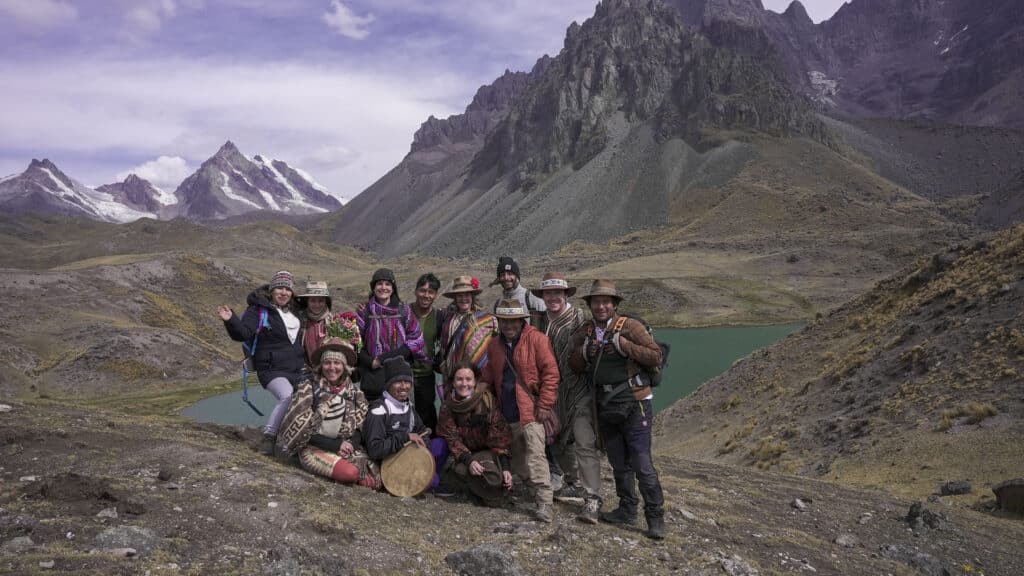

Industry Partners & Supporters


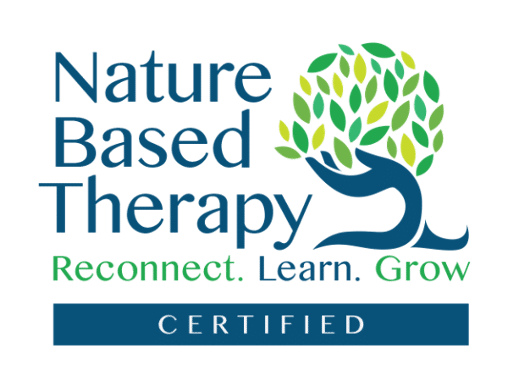
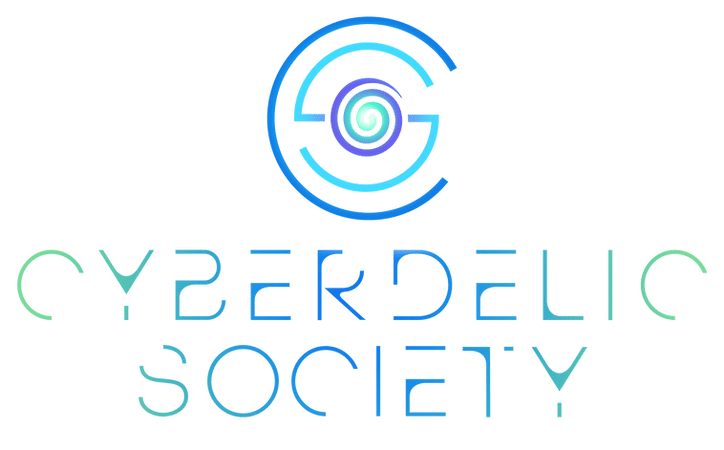

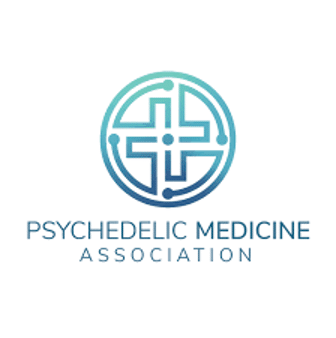
Testimonials
200PAT Psychedelic-Assisted Therapy (PAT) Training Course (Trauma Informed)
A Yoga Australia Approved Training Course, Registered Psychedelic-Assisted Therapist & Training Course
Certificate of Psychedelic and Contemplative Therapies (CPACT)
The BioMedical Institute of Yoga and Meditation, BIYOME
BIYOME has collaborated with The Signs of Life Psychology to offer a Psychedelic-Assisted Therapy (PAT) training course that is crafted in alignment with emerging Australian standards.
Facilitators from The Signs of Life Psychology, namely Dr. Lani Roy and Melissa Warner, will provide comprehensive training in PAT skills and will be supported by a range of leading academics, psychiatrists and clinicians in the space.
Upon successfully completing this course and meeting the necessary skill prerequisites, you will acquire the proficiency to provide Psychedelic Assisted Therapy within the parameters of current regulatory government guidelines, fulfilling the roles of a Psychedelic Prescriber (PP), Psychedelic-Assisted Therapist (PAT), or Psychedelic Facilitator (PF). It’s important to note that for full accreditation as a Psychedelic Therapist, you must have eligibility for registration with a governing body such as:
- Australian Health Practitioner Regulation Authority (AHPRA)
- Australian Association of Social Workers (AASW)
- Psychotherapy and Counselling Federation of Australia (PACFA)
- Australian Counselling Association (ACA)
- Indigenous Allied Health Australia (IAHA)

What You Will Learn
The course is structured to cover key areas relevant to Psychedelic-Assisted Therapy & Complementary Therapies.
You will receive a Certificate of Psychedelic and Contemplative Therapies (CPACT).
Introduction to Psychedelic-Assisted Therapy:
- Overview of PAT principles and historical context.
- Exploration of TGA regulations and recent decisions impacting PAT in Australia.
- Trauma-Informed Approach to psychedelic therapy.
History and Foundations:
- Dive into the medicinal history of psychedelics.
- Explore the role of plant medicine in Indigenous traditions.
- Understanding cultural significance.
Consciousness, Buddhist and Yogic Connection:
- Uncover the nexus of psychedelics, consciousness, and ego death.
- Explore intersections with yoga, Kundalini awakening, and related themes.
- Delve into the science of consciousness and the use of psychedelics in research.
Psychoactive Substances:
- In-depth knowledge of commonly used psychedelic substances.
- Understanding dosage, effects, and contraindications.
- Exploration of Psilocybin, MDMA, DMT, Ketamine, and Cannabis with a focus on evidence-based research.
Client Assessment and Suitability:
- Techniques for pre-screening and assessing client suitability for PAT.
- Identifying potential risks and contraindications.
Clinical Skills Training for Psychedelic-Assisted Therapy:
- Practical training in administering PAT sessions.
- Techniques for ensuring a safe and supportive therapeutic and trauma-informed environment.
- Effective preparation, adaptive facilitation, and post-session guidance.
Complementary Therapeutic Modalities:
- Somatically focused therapies such as Trauma-Informed Yoga, Compassion-Focused Yoga Therapy, and Meditation.
- Trauma-Informed Meditation and Mindfulness-based approaches.
- Trauma-informed therapies that recognise the multiplicity of the psyche such as EMDR, Internal Family Systems, Structural Dissociation, Ego State Therapy, Resource Therapy, Clinical Hypnosis, Gestalt Therapy, Jungian Depth Psychology, Psychodynamic Psychotherapy, Schema Therapy, Transpersonal Psychology, Voice Dialogue.
Ethics and Legal Framework:
- Detailed exploration of ethical considerations in PAT.
- Review of legal frameworks and recent decisions impacting the practice.
Professional Development and Integration:
- Strategies for ongoing professional growth in the field.
- Best practices for integrating PAT into existing therapeutic modalities, including somatic therapies such as trauma-informed yoga, somatic experiencing, compassion-focused therapy, lifestyle medicine, creative arts, embodiment practices, trauma-informed meditation, and mindfulness.
- Nature-based therapy and indigenous philosophies and indigenous competency for psychedelic-assisted therapy.
- Explore current issues in the psychedelic space that impact accessibility and cultural safety of psychedelic-assisted therapy for Aboriginal and Torres Strait Islander peoples, and culturally informed models of care and practice that incorporate Indigenous ways of knowing, being and doing, and how IPAT can support your practice.
- How to integrate psychedelics into your current business model.
Industry Partners & Supporters
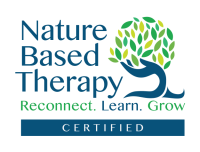


This extensive course not only meets the emerging Australian standards but also plays a proactive role in meeting the increasing training demand for authorised prescribers of psychedelic-assisted therapy. BIYOME is utilising the most up-to-date research, clinical and community practice regarding what fundamental education for PAT administrators, therapists, and facilitators involves.
